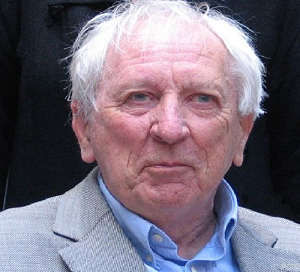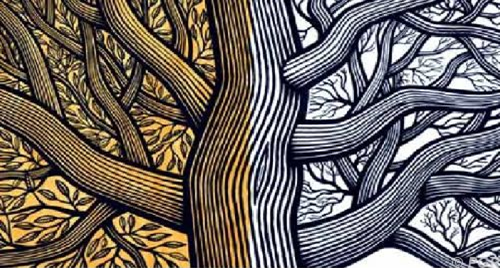Dec 21, 2025
Dec 21, 2025
 The poet Tomas Transtromer has finally tasted triumph by winning the Nobel Prize for literature for 2011. The Swedish Academy praised Mr. Tranströmer, saying that “through his condensed, translucent images, he gives us fresh access to reality.” This is absolutely true of his serene poetry.
The poet Tomas Transtromer has finally tasted triumph by winning the Nobel Prize for literature for 2011. The Swedish Academy praised Mr. Tranströmer, saying that “through his condensed, translucent images, he gives us fresh access to reality.” This is absolutely true of his serene poetry.
The 80-year-old Tomas Transtromer is one of the greatest Scandinavian poets and has had a profound influence in the literary world as Sweden’s most important poet since World War II, an influence that has steadily grown and has now attained a prominence comparable to that of Pablo Neruda's during his lifetime. But if Neruda is blazing fire, Transtromer is expanding ice. His newly collected poems, "The Great Enigma", wonderfully translated by Robin Fulton endorses his brilliant oeuvre.
His poetry thoughtfully explores the unconscious and challenges the reader’s conception of the world. He is also known for his subtle, multi-faceted poetry that typically explores man’s relationship with nature, and reveals mystical insights into the human mind, a result of his training in psychology.
Of his spare and incisive work produced over nearly 30 years, Transtromer has confessed, 'My poems are meeting places.' The metaphor is singularly apt for his divided career, his dominant concerns, his wide-ranging subject matter and, not least, for his claim on a growing audience. Transtromer displays enormous economy of words and expressions in his poems that gives his poetry a rare density. Equally notable is his marvellous ability to coin metaphors, not in a mechanical sense, but because they open up a world by itself. His metaphors give new meanings to things, situations, emotions or people. Just consider the very first poem that appears in the book mentioned above. The title of the poem is "Prelude". It describes the process of just getting up from bed in the morning as a parachute jump.
"Waking up is a parachute jump from dreams.
Free of the suffocating turbulence the traveler
sinks toward the green zone of morning. "
(Translated by Robin Fulton)
Tomas Tranströmer comes from a long line of ship pilots who worked in and around the Stockholm Archipelago. He was born in Stockholm on April 15, 1931. His father and mother divorced when he was three; he and his mother lived after that in an apartment in the working-class district of Stockholm. He describes that apartment and the shifting of a bookcase into his room and filling of books that he had inherited in his poem titled “The Bookcase.”
"It was fetched from the dead woman's apartment. It stood empty for a few days, empty until I filled it with books, all the bound ones. In doing so, I let in the netherworld. Something rose from the underneath, slowly and inexorably like a massive column of mercury. Your head couldn't turn away."
One of the most beautiful qualities in his poems is the space we feel in them. One reason for that is that the four or five main images that appear in each of his poems come from widely separated sources in the psyche. His poems are a sort of railway station where trains that have come enormous distances stand briefly in the same building. One train may have some Russian snow still lying on the undercarriage, and another may have Mediterranean flowers still fresh in the compartments.
'A man feels the world through his work like a glove,' Mr. Transtromer has written.
The child of a broken home, the poet became a psychologist, first doing therapy and rehabilitation for six years at the Roxtuna Prison for Boys. Later he and his family moved to Vasteras where he worked with a state labor organization, counselling juvenile delinquents, treating the physically handicapped, drug addicts and parole offenders. rehabilitation.
(Translated by Robin Fulton)
Tomas Tranströmer’s poems are so luminous that it elevates you into a sombre mood of meditation about life. He has a strange genius for the image—images come up almost effortlessly. These images have a resonance with the outer and inner depths of nature and shows the psyche of a poet vulnerable to the shocks of our world. In a poem called 'Night Duty' he conceives himself in the figure of a ballast stone in the deepest hold of a ship. The poem begins as below:
'Tonight I am down among the ballast
I am one of those silent weights
that prevent the ship from overturning!'
Obscure faces in the darkness like 'stones.
They can hiss: "Don't touch me." '
(Translated by Robin Fulton)
His powerful imageries are often concerned with issues of fragmentation and isolation. Forest is a recurring image in many of his poems. Being in the forest seems to connote a sort of existential abandonment — perhaps a necessary precondition to authentic discovery or salvation. The poem “The Clearing” begins:
"Deep in the forest there’s an unexpected clearing that can be
reached only by someone who has lost his way.The clearing is enclosed in a forest that is choking itself. Black
trunks with the ashy beard stubble of lichen. The trees
are tangled tightly together and are dead right up to the tops,
where a few solitary green twigs touch the light. Beneath them:
shadow brooding on shadow, and the swamp growing."
(Translated by Robin Fulton)

The exotic provenance of images in his poems is balanced by the stones, forests, villages and cities of his native Sweden, the chief metaphors of his meditations on existence. One obsessively recurring image complex : the car, the driver, the mass migration of traffic. The motif of driving somewhere, anywhere, becomes an effective symbol for contemporary man, encased in his technology, separated from the earth, prone to sudden accident, moving in the blind flow of traffic like 'a sluggish dragon' over asphalt where 'seeds try to grow.' His marvelous poem "Alone" is an example of it. May be his life as a psychologist explains his fascination with things that might have arisen only from dreams, from the archetypal forms that lie deep, deep within us all. Consider the following passage:
"It's spring and the air is very strong. I have graduated from the university of oblivion and am as empty-handed as the shirt on the clothesline."
Swedish poetry tends to be very rational, and therefore open to fads. Tranströmer, simply by publishing his books, led a movement of poetry in the opposite direction, toward a poetry of silence and depths. Read the poem "April and Silence" and note the striking third stanza.
April and Silence
(Translated by Robin Fulton)
Spring lies desolate.
The velvet-dark ditch
crawls by my side
without reflections.The only things that shines
is yellow flower.I am carried in my shadow
like a violin
in its black box.The only thing I want to say
glitters out of reach
like the silver
in a pawnbroker's.
Tranströmer was able to tackle the ‘big’ subjects without seeming in the least bit pretentious or foolish. I was bit shocked to read his description of how grief displaces our everyday sense of reality in ‘After Someone’s Death’. It is a poem of three stanzas of four lines each. As in many of Tomas Tranströmer’s poems, this one begins with the appearance of a story, but by the end, the series of disconnected images do not seem to add up to a coherent narrative. It is the speaker’s visual (rather than organic) ordering of things that holds the poem’s various images together. The title suggests the discontinuity between life and death; it is the time after someone’s death that the poem considers.
After Someone’s Death
(Translated by Robin Fulton)
Once there was a shock
that left behind a long pale glimmering comet’s tail.
It contains us. It blurs TV images.
It deposits itself as cold drops on the aerials.
You can still shuffle along on skis in the winter sun
among groves where last year’s leaves still hang.
They are like pages torn from old telephone directories–
the names are eaten up by the cold.
It is still beautiful to hear your heart throbbing.
But often the shadow feels more real than the body.
The samurai looks insignificant
beside his armor of black dragon scales.
Transtromer has traveled extensively, and much of the pleasure of his art is in the wit and accuracy of his imagination as it expands our awareness and renews the familiar. In a smoky hut in Madeira, two fish are frying with 'tiny garlic explosions.' New York City seen at night from a distant prospect is like 'a spiral galaxy seen from the side,' the dozing bodies in its subway cars becoming 'catacombs in motion.' Sometimes these deft formulations go beyond pungent perception to express an aesthetic credo, a moral stance, as in a prose-poem titled 'Upright,' which captures the condition of living 'free but wary' in the memory of a visit to the Sara tribe in Africa. In 'From an African Diary', he describes climbing on a canoe hallowed from a log:
'The canoe is incredibly wobbly, even when you sit on your heels. A balancing act. If the heart lies on the left side you must incline your head a little to the right, nothing in the pockets, no large gestures, all rhetoric must be left behind. Just this: rhetoric is impossible here. The canoe glides out over the water.'
Penetrating insights about the mystery of existence are abundant in his poems and it has led to Tranströmer being described as a visionary poet, and certainly a sense of the numinous, of moments of spiritual epiphany, embalms his poetry. They are full of stolen moments when he seems to have caught himself off-guard:
"I pause with my hand on the door handle, take the pulse of the house",
or
"I stand under the starry sky
and feel the world creep
in and out of my coat
as in an ant-hill".
Finally, I have presented below two poems of Transtromer to illustrate how beautifully Transtromer gives extraordinary vision on ordinary things with ordinary words.
Espresso
(Translated from the Swedish by May Swenson and Leif Sjöberg)Black coffee at sidewalk cafes
With chairs and tables like gaudy insects.It is a precious sip we intercept
Filled with the same strength as Yes and No.It is fetched out of gloomy kitchens
And looks into the sun without blinking.In daylight a dot of wholesome black
Quickly drained by the wan patron...Like those black drops of profundity
Sometimes absorbed by the soulThat give us a healthy push: Go!
The courage to open our eyes.
One cannot agree more on that mix of 'YES and NO' in the above poem. The imageries of a dot of back and colourful plastic chairs as gaudy insects are also striking .
Black Postcards
I
The diary written full, future unknown.
The cable hums the folk song with no home.
Snowfall on the lead-still sea. Shadows
wrestle on the Pier.2
In the middle of life it happens that death comes
To take man's measurements. The visit
is forgotten and life goes on. But the suit
is sewn on the quiet
The above poem is a sombre one . You may pause, think about it and move on like 'the visit forgotten'
By bestowing Nobel Prize for Literature, the Swedish Academy has finally recognized the world's most translated poet, a poet who truly grapples with the agony of modern man and daringly defines our inner world. The turbulent silence of Transtromer has triumphed finally.
References:
The Great Enigma: new and collected poems translated by Robin Fulton
The Winged Energy of Delight-poems from Europe, Asia and the Americas translated by Robert Bly
08-Oct-2011
More by : P. G. R. Nair